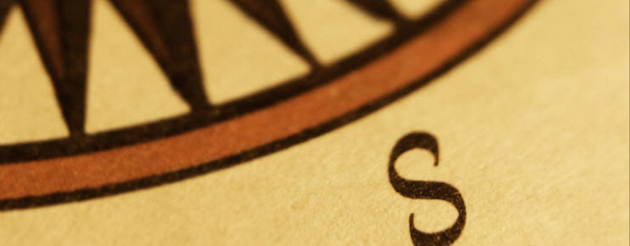

![]() Wednesday was Remembrance Day, it’s a day full of contradictions that I always find difficult.
Wednesday was Remembrance Day, it’s a day full of contradictions that I always find difficult.
The first question is who are we remembering? It varies from ‘those brave young men that made the ultimate sacrifice to defend democracy’ through to ‘all victims of all wars’. The second definition I can get behind, but that’s not what wearing a poppy’s about.
Today we are used to the Cenotaph in Whitehall, the grave of the unknown soldier, they are part of the established order, but in 1919 they were something quite new. The dead of previous wars, at least the ordinary solders, were not remembered by the state. Statues were built to the generals of the Napoleonic wars, the Crimea and Boer wars, but the ordinary soldiers and sailors were only remembered by their comrades and families.
The scale of slaughter and the revulsion of those who saw it first hand had a radicalising effect on the population at the end of the First World War. I was struck by a play I saw recently called Evie’s Story. At one point it relates the fate of the Leeds Pals Regiment at the Battle of the Somme. Of 750 men, 200 died on the first day of the battle, many more in the following weeks and months. And Evie points out ‘there wasn’t a street in the city that wasn’t affected’. This meant the loss wasn’t felt just by isolated families, but by the whole population.
Oh and by the way, most of those Leeds Pals didn’t have the vote, so I don’t know what sort of democracy they were defending.
The returning soldiers rightly demanded that the sacrifice of their comrades was remembered. Churches and councils were lobbied to erect war memorials with lists of the dead and the cenotaph was built in Whitehall, first as a temporary structure then when the agitation wouldn’t go away, permanently.
Faced with this the government and the army did everything they could to turn it to their advantage. Ceremonies became state affairs complete with pageantry and protocols, the very people who had started the war became the most important people at the event. The festival of remembrance became a military spectacle with march pasts and that gun carriage competition.
This didn’t always go unchallenged. I may have told the story of Luton’s Lord Mayor before but it bears repeating. He was a notorious war profiteer and when he tried to charge for the remembrance dinner, old soldiers burned his house down singing Keep The Home Fires Burning.
The Second World War was different, at least in the public perception. This was a good war dealing with a modern barbarism.
Now of course Hitler and the Nazis had to be dealt with. The trouble is that those who understood this and volunteered to fight the same tyranny in Spain had their passports stamped “Premature Anti Fascist”. Apparently you can only fight the Nazis once the British State is at war. Churchill had no problem with most of Hitler’s policies, he had a big problem with Germany taking over British colonies and accessing their natural resources.
In many ways the Second World War was a war for oil, as have many of the wars that have followed.
And what of today’s war dead? Another war for oil, this time in Iraq and ordinary young British people are dying in a far away place again. I do feel sorry for them and their families, and their names must be remembered, but …
I think there is a difference between a conscripted army and volunteer, professional forces. I know some people join up because they can’t get a job elsewhere, but there is still a choice. Part of me thinks putting yourself in harm’s way was part of the contract you signed up to, so why complain when you get injured or killed.
Only part of me thinks that, the rest is too busy being angry with the politicians who send the soldiers, sailors and airmen to do their dirty work. And there shouldn’t be any need for charities like Help For Heroes and the Poppy Appeal. The British state should take responsibility for its ex-servicemen.
I grew up in the aftermath of the Second World War. Even twenty years later it was everywhere in popular culture – books, films, comics. As a result I’ve had a lifelong interest in the war and looked into its military history. Odd for a pacifist perhaps, but you have to know your enemy.
So what have I learned from military history? Two things stand out. Firstly the age and rank of the dead soldiers – overwhelmingly young, under 25, and very few officers. In every war.
Secondly, politicians have always liked the idea of bombing the enemy from a ‘safe’ distance. But bombing by plane, missile or artillery does not win wars, you need infantry to do that. So when Parliament debates bombing Syria, just remember that they are also debating ‘boots on the ground’ if they are going to see it through. Otherwise it will be another Libya, a job half done that comes back to bite us in the shape of the refugee crisis.
For me the point of remembrance is to stop wars happening. Wearing a poppy in November hasn’t done that over the last hundred years.
I’ll be back next week with more of my views from South of the River. If you’re on Twitter, you can follow me: @BeestonJeremy.




Nicely put……………but of course peace campaigners are “loony lefties” and decent men like Jeremy Corbyn are dangerous for the security of our country and economy. So today, Cameron whilst wearing his many poppies wants some more war…… you can’t make this hypocrisy up! Veterans against War is a superb organisation and they join in the proceedings at the Cenotaph trouble is they have to compete for space with the nazis of the assorted NF – again the irony is so funny it hurts. The sight of absolutely everyone appearing on our tv screens with the poppy attached gets on my nerves and nowadays it goes on for weeks! Many of us never ever stop thinking about all lives lost in wars for profit and territory and resources and we don’t need to illustrate it by the wearing of the poppy. My poppy is a white one for peace. Yes the state should look after those returning from the wars, after all the state sent them.